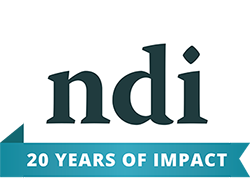By Jeremy Einbinder
I have cerebral palsy. I have always had cerebral palsy and it has affected my mobility my entire life. My physical struggles have remained relatively constant for most of my life. My social struggles, on the other hand, change with my age and environment. I am 25 years old, a college graduate and having cerebral palsy continues to be a barrier for me. However, despite any assumptions, it’s not really due to my walker or wheelchair. Socialization has never come easily to me, and that’s as much a product of my physical environment as it is a product of my innate limitations that my impairments cause, directly or indirectly.
Socialization continues to be one of the most pressing challenges for me, even though cerebral palsy is a physical disability. It was easier for me to be social when I was young enough to have “playdates.” Social gatherings that parents organize are more likely to give kids some company. When kids haven’t developed enough to organize plans for themselves on their own, the “playdate” is helpful. These kind of social interactions worked for me when I was very young, but that changed as I got older. In middle school, I had a few solid friends to play video games with for a couple hours in my basement. These were mostly friends who had already known me for a long time and had been through the “playdate” stage with me. Playing Xbox and talking about the Yankees was simple enough. I didn’t really know how to “go out” with friends and meet new ones. I was not often invited to social events because, again, other people’s houses and public places were not always accessible and, even if they were, that wasn’t usually a thing teenagers thought about.
At least partially, as a result of my physical limitations, I was sheltered during high school. By high school, friends went their own way. They could ride their bikes somewhere (I couldn’t). They could then drive a car somewhere (I can’t). Now Uber exists, which is supposed to make spontaneous social plans easier for people (which I can’t rely on because in order to ride in anyone’s car, I need to first know whether my wheelchair will fit in their trunk; even if it does, I need to ask a friend to put the chair in the trunk and help me get in the car). Even if socializing simply involves relaxing in someone’s basement with a bunch of people, I cannot easily do that unless someone can carry me.
College was certainly easier to navigate physically, but with so little experience being social I was stressed about every social interaction. On campus, I’d roll up to a table and talk to people I sort of knew, or just people I had seen in class, but I wasn’t very skilled in these interactions, so these meetings never really led to friendships. Struggling, I often hid in my dorm or apartment trying to text people just so I could ask about how their actual lives were going. I was not always successful, mind you. I imagine people were busy actually doing things. I later managed to get a good enough muscle memory to roll to the nearby bar, but I almost always went alone and just sort of hoped to see people. It was not such a reliable method.
All of this usually means one of two unpleasant outcomes regarding socialization. Either I have the energy to socialize with the constant worry I might be off-putting to people (which I am right about far too often), or I do not socialize as much as I want to so I can avoid that fear coming to fruition. In either case, I end up alone. Whether I am awkward physically or socially, and whether the fears I have are real or imagined, they affect me negatively. Only when I have opportunities to socialize spontaneously will I even have a chance to improve. Because every social interaction builds on previous ones, I am constantly “catching up.”
Socializing tends to be more difficult for people with disabilities, whether or not their diagnosis directly affects social skills. Society is designed in such a way that impairs and literally disables me and others from easily participating in environments and social structures that surround us. We, as people with disabilities, can try our best to live with that, but we need more opportunities to thrive. Humans are social creatures and people with disabilities are no exception. It is a given that we need to survive in this world. However, we also need to fight, to whatever extent we are able, to create new social structures that cater to enriching the human experience of all. I’m doing both. It’s still a struggle.



